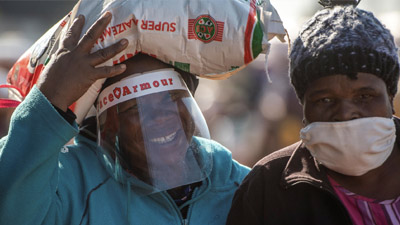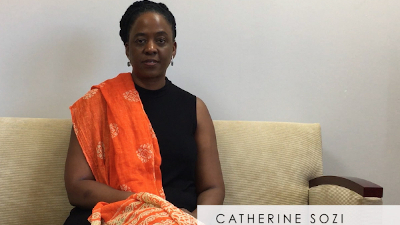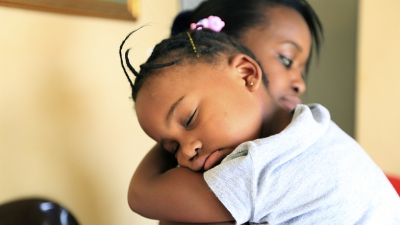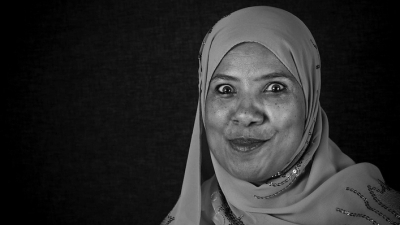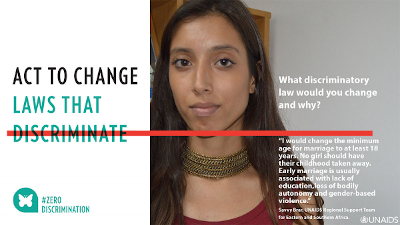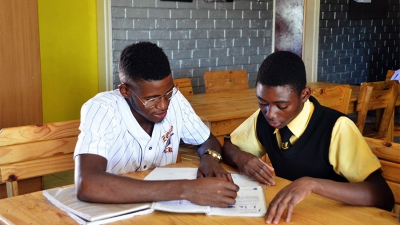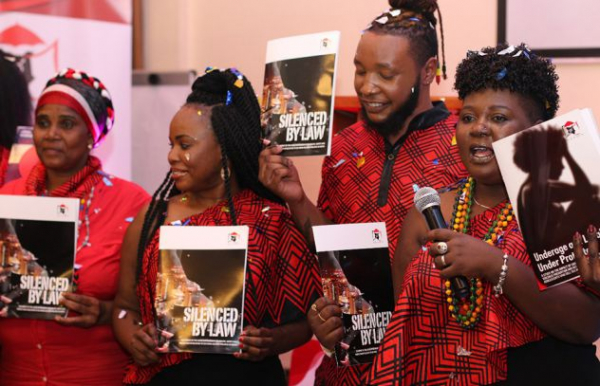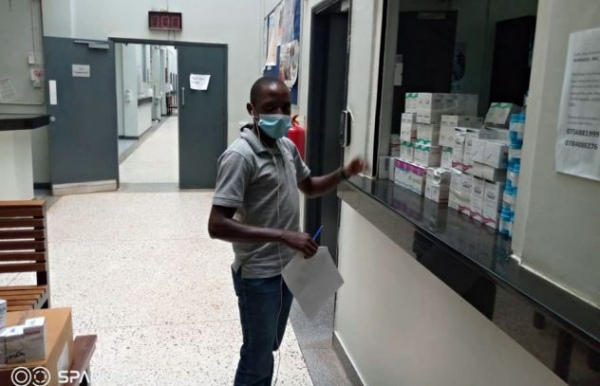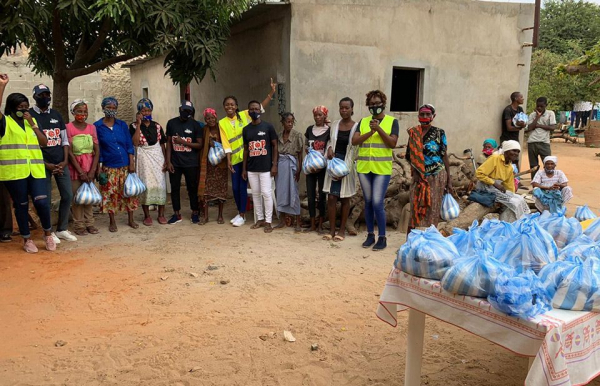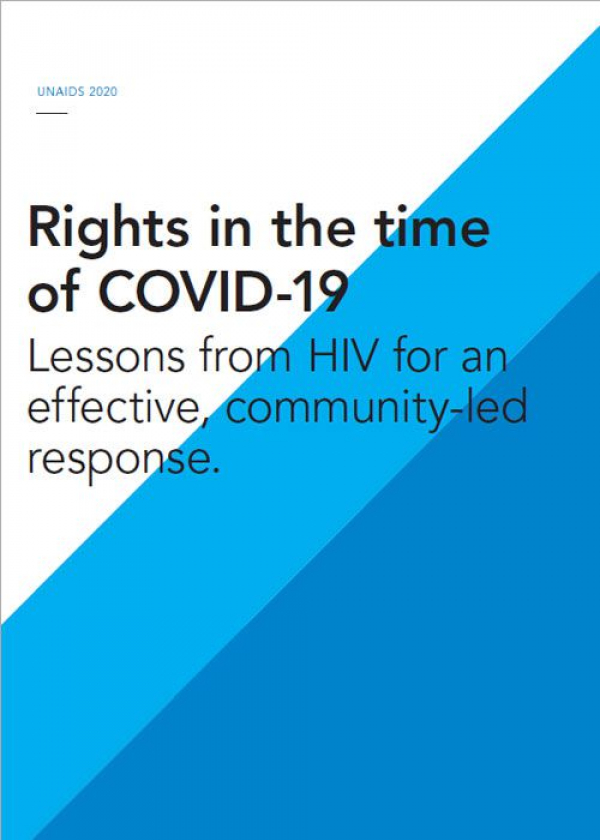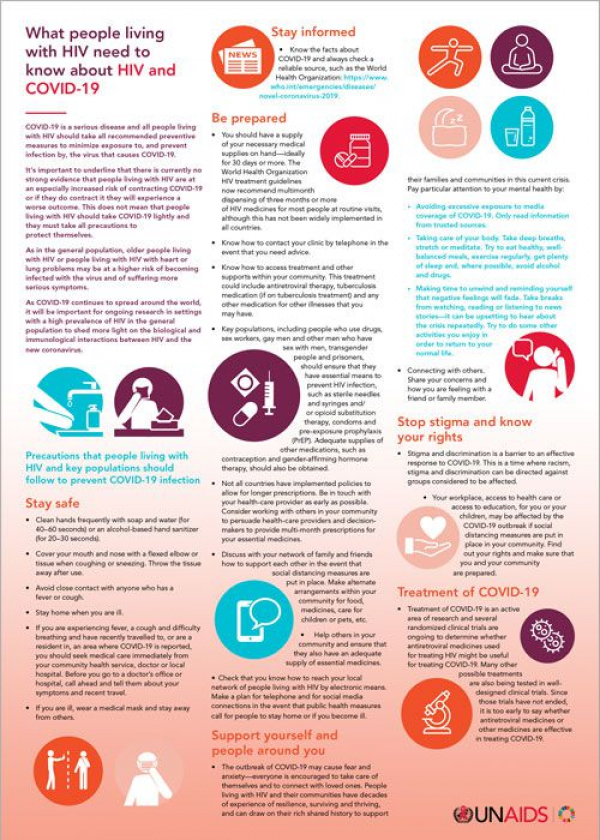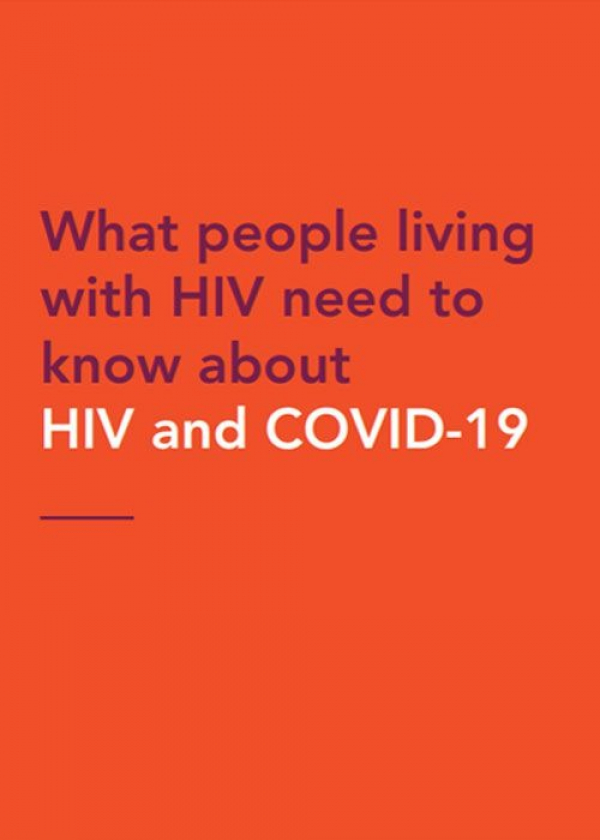Resources
Special Initiatives
Francisco
During the more than a decade that Carolyne Njoroge worked as a sex worker, she never saw such violence and abuse against her peers. Now working full time for the Kenya Sex Workers Alliance (KESWA), she says that the COVID-19 lockdown threw everyone into disarray.
“At the outbreak, no one was prepared for the coronavirus,” she said. “It’s not like the rains that we know and can prepare for.”
The government’s lockdown measures to limit the spread of the virus—a dusk-to-dawn curfew and shutting of bars and nightclubs—have left sex workers in Kenya to either work during the day and be very visible or to break the curfew at night.
So far, more than 50 sex workers have been forcefully quarantined, and women have been arrested for not adhering to the social distancing rules and obligatory mask-wearing.
“How do you expect women to adhere to these measures when they cannot feed themselves and their families and many of them don’t even have homes?” Ms Njoroge asked.
Kenya does not criminalize sex work. However, the law forbids “living on the earnings of sex work” and “soliciting or importuning for immoral purposes,” which Ms Njoroge said means that the women work in a grey area. “It’s a very hostile work environment and sex workers are the first to be violated because they say our work is not work,” she said.
Phelister Abdalla, a sex worker living with HIV and KESWA’s National Coordinator, said that the police are taking advantage of the COVID-19 situation.
She said that police raided guest houses more regularly and targeted the community, shaming and beating them, leaving them defenceless.
“This is a population that needs to be protected, but if we are told to stay at home we need to be given food,” she said.
Currently, the government has not released funds or directed aid to sex workers, so KESWA started a fundraiser to dispatch hygiene packs, which include hand sanitizer, masks and menstrual pads, as well as food baskets.
Ms Njoroje said that 100 sex workers from the informal settlements had benefitted. “Our challenge is keeping up with demand, so we are reaching out to others for help,” she said.
Ms Abdalla said that fighting the pandemic together is key. “If we want to end COVID-19, we should not be judged by the type of job we do,” she said. “We are first and foremost Kenyans, so treat all of us equally.”
Fifty-seven Kenyan civil society and nongovernmental organizations, including KESWA, drafted an advisory note to the Kenyan Government to urge it to put in place safety nets to cushion the communities and people who cannot afford to not work. They also urged them to stop security forces from enforcing measures around social distancing and curfews. The note adds, “We cannot use a “one size fits all” approach for COVID-19” and calls upon the United Nations leadership to help safeguard the progress.
UNAIDS believes that governments are bound by international human rights law to respect, protect and fulfil human rights, without discrimination, even in times of emergency.
Kuraish Mubiru wakes up at dawn every day to get refills of antiretroviral therapy from different health facilities before making deliveries to his peers and other members of the community living with HIV. This has been his routine for the past seven weeks.
Mr Mubiru is the Executive Director of Uganda Young Positives (UYP), a community-based organization that brings together young people living with HIV, mainly from the informal sector. With more than 50 000 registered members, UYP focuses on scaling up HIV prevention, care and support services for its members.
When Yoweri Museveni, the President of Uganda, first addressed the nation on 18 March on the global COVID-19 pandemic, among the measures put in place were restrictions on mass gatherings, the closure of most businesses and the cessation of public transport. Since then, people living with HIV and tuberculosis have found it difficult to access their routine medical care or essential medicine refills.
Following the measures, Mr Mubiru started receiving calls from young people whose livelihoods and HIV treatment were dependent on facilities that had been closed. The impact of the restrictions was beginning to be felt. Young people were no longer able to move to their respective health facilities to access care and treatment nor afford a meal.
Although there have been efforts by health centres and civil society organizations to transport antiretroviral medicines closer to the people, a good number, as reported by the community support groups and health centres, have not received their antiretroviral medicines owing to fear of stigma and discrimination by the community and family members.
“This was a trying time for the community and a huge test of our resilience because our peers needed us more than ever,” said Mr Mubiru. “We had to come out of our comfort zone, act and think fast not to lose all our gains in the national HIV response in the wake of COVID-19.”
Mr Mubiru volunteered to support his fellow peers to access HIV treatment using his own car. In the beginning, he used his own resources to fuel his car and purchase food, but he soon ran out of money.
Initially, one of his biggest challenges was being able to fuel his car to continue with the daily refills, but the further tightening of restrictions on private transport meant that Mr Mubiru could not continue with deliveries. Through the support of UNAIDS, the Infectious Disease Institute and the Ministry of Health, he obtained a permit granting him permission to enable him to continue supporting his community.
During one of his routine deliveries, Mr Mubiru’s car was impounded by the police for more than four hours and he was made to wait. It took the involvement of the police leadership to have the car and Mr Mubiru released. On many occasions, he has been stopped by the police, demanding to know where he is going—those delays at times force him to get home past the curfew time of 19:00.
Mr Mubiru’s resolve to support his community is unwavering. He knows that not everybody would be comfortable visiting the nearest health facility for their antiretroviral refills, disclosing the reason to the local authorities for them to be granted movement or have a community organization’s branded car parked outside their home.
“Instances like these propel me to get out of bed every morning. We are still in this together. COVID-19 will end, and life will continue,” he says.
On average, he delivers eight antiretroviral refills per day to his peers. Besides the long distances and hard-to-reach places he has to go to, food is one of the biggest challenges, since hunger compromises people’s adherence to their medication. Stigma and non-disclosure also pose a great challenge for people to access HIV treatment from a nearby facility.
“The COVID-19 outbreak is having a major impact on people living with HIV,” said Karusa Kiragu, UNAIDS Country Director for Uganda. “We must ensure that adherence to HIV treatment is not compromised. This can be achieved through multimonth dispensing of antiretroviral therapy, supported by a strong community-led response,” she said.
“Angola has a long history of epidemic outbreaks,” said Michel Kouakou, UNAIDS Country Director for Angola. “From cholera, malaria, polio and yellow fever, the country is well prepared and has competent people to deal with outbreaks, including health-care workers,” he said.
As a result, the President of Angola, João Lourenço, took immediate steps early in the COVID-19 outbreak, including a nationwide lockdown, closure of the border and cessation of international flights.
While this had the effect of keeping new COVID-19 cases low, it caused many people to lose their livelihoods, especially people who work in the informal sector.
To respond to the food insecurity that this caused, especially among people living with HIV, the UNAIDS Country Office for Angola leveraged its partnerships to reach thousands of people in Luanda, the capital city of Angola, with food baskets.
Under the auspices of her Free to Shine campaign, which focuses on the elimination of mother-to-child transmission of HIV in Angola, the First Lady of Angola, Ana Afonso Dias Lourenço, in partnership with the Saham Angola Insurance Company, the Association of HIV-Positive People and UNAIDS, distributed 1000 food baskets to people living with HIV, 500 of which were given to pregnant women living with HIV.
As the lockdown proceeded, Yola Semedo, a popular Angolan singer and songwriter and a UNAIDS National Goodwill Ambassador, arranged a virtual concert, which was televised on national television. She raised funds for an additional 14 000 food baskets, which she distributed in Luanda and Benguela provinces, including 500 food baskets for people living with HIV in Luanda.
“Our people are vulnerable due to COVID-19 and at this time I feel very happy to be a daughter of this land. It is at this time that we realize that ours are here with us,” said Ms Semedo.
A long-standing civil society partner of UNAIDS, the Angola Network of AIDS Service Organizations, which supports people and families living with HIV, has distributed 1500 food baskets, and the numbers are growing as more are distributed every day.
The Association of Policewomen in Angola also joined the movement and donated 120 food baskets to the faith-based organization Associação de Solidariedade Cristã e Ajuda Mútua in order for them to distribute the packs to female sex workers, who have experienced a loss of income owing to the COVID-19 pandemic.
“While many countries in the region have used lockdown as an excuse to further criminalize key populations, including sex workers, this action has shown that solidarity is key during this time,” said Mr Kouakou.

